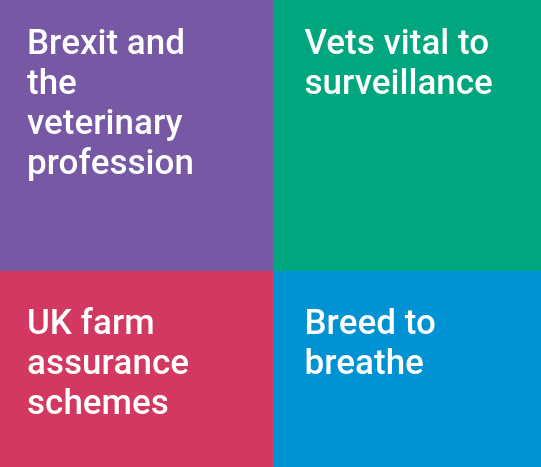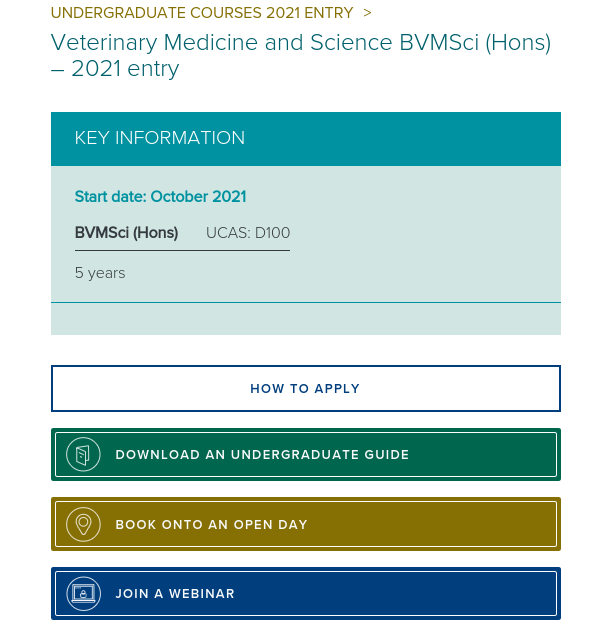Hello everyone! My name’s Amy and I’m a 3rd year Veterinary Medicine student here at The University of Surrey.
I have applied twice for Veterinary Medicine after missing out on a place due to grades on my first application. This means I’ve completed 8 vet school interviews and was successful at 6 of them. As the deadline for Veterinary applications is coming up soon I’d thought I’d share my top 3 tips for admissions from my personal experience!

Number 1 – Make Smart Decisions
Veterinary Medicine is very competitive so make sure you’re applying to vet schools that will set your application up for success. Each university has different preselection requirements before you can be invited for an interview. These could be having a specific 3rd A-Level subject, the number of weeks of work experience and specific requirements about where this work experience was done. For example, Surrey’s entry requirements are AAB with Biology, Chemistry and 4 weeks work experience with 1 week in a vet practice. Due to COVID-19, many universities are accepting online placements but double check with each individual university you are interested in! Apply for universities that you really like and feel at home at, this will definitely come across at interview days and make you feel more competitive. Attending Virtual Open Days are really helpful for this! You can book on for the 11th October at Surrey here.
Number 2 – Find Your Passion
Having a strong interest in something will make your application stand out from the crowd, and don’t be scared to have an opinion! This could be anything and doesn’t have to be veterinary specific. For me, I met a Pitbull while volunteering at a local rescue centre and, after researching more, now have a very strong opinion on Breed Specific Legislation. I spoke about this in my interviews and online questionnaires and now raise money for a Pitbull legal defence team. Having opinions also demonstrates your current industry knowledge, ability to rationalise arguments and allows admissions to know more about you as an individual.
The BVA has a page dedicated to industry campaigns here and you can find more veterinary related news by following accounts such as Vet Record on social media.

Number 3 – Transferable Skills
From work experience, part time jobs, sports and hobbies you’ll be gaining and developing many interpersonal skills that are essential for being a good vet and assisting with your application. For a list of skills needed, I’d recommend looking at the RCVS Day One Competencies. These are a list of skills you need to be able to achieve to graduate as a veterinary surgeon and are what makes up our learning objectives and assessments. Some skills are related to clinical practice, so aren’t expected of you at this stage, but ones such as communication, professionalism and adaptability are skills that you can definitely gain and develop at any time. There’s no set way of demonstrating or achieving these skills either so draw on your life experiences and experiences on work experience when reflecting and answering questions.
It might be helpful to prepare by asking yourself questions such as when have you had to deal with an upset person or when have you demonstrated leadership? Remember to focus on how you can adapt these skills and don’t memorise answers as interview questions can be worded very differently to how you’d expect.

As my last word of wisdom, as hard as it seems, try to enjoy the process! It can be challenging but it makes achieving a place so rewarding. Even after all the setbacks, there is nowhere else I’d rather be than studying Veterinary Medicine here at Surrey.
You can find out loads more about The University of Surrey and it’s Vet School by attending a virtual open day and taking a look at our websites!

